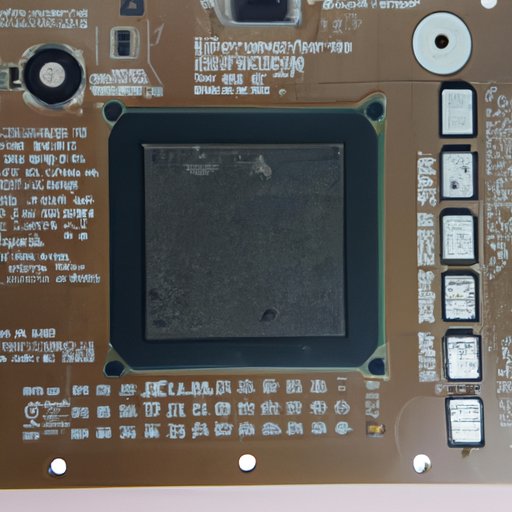Introduction
A computer is a device that can receive, store, retrieve, process, and output data. This definition has evolved since the first computers were invented in the early 1800s, when they were mechanical machines that could only perform simple calculations. Today, computers are digital devices that can do everything from running sophisticated software to powering self-driving cars.
This article explores why computers were invented and how their development has impacted society. It will consider the historical perspective of early mechanical machines, the educational and employment benefits, technological advancements, military use, and economic and social connectivity benefits of computer technology.
Historical Perspective
The first computers were mechanical machines built in the early 1800s. These early computers were used mainly for mathematics and astronomy, and were limited in their capabilities. For example, Charles Babbage’s Difference Engine was designed to compute polynomial functions, but it was never completed due to lack of funding.
The development of modern digital computers began in the 1940s. This period saw the invention of electronic computers such as ENIAC, which was the first large-scale general-purpose computer. Digital computers were much more powerful than their mechanical predecessors, as they could calculate much larger numbers in a fraction of the time.
Education and Employment Impact
The invention of computers revolutionized learning and changed the workplace. Before computers, most educational material was printed on paper, making it difficult to access and update. With the advent of computers, educational material became easier to access and update, allowing students to learn faster and more efficiently.
Computers also changed the way we work. As computers became more powerful, they replaced manual labor in many industries. This allowed businesses to become more efficient and productive, allowing them to produce more goods and services at a lower cost.
Technological Advancement
In order for computers to be invented, certain technological advancements had to be made first. Innovations such as the transistor and integrated circuit enabled the development of computers. Without these innovations, computers would not have been possible.
Other key developments include the invention of the internet, which allowed computers to communicate with each other, and the development of graphical user interfaces, which made computers easier to use. All of these developments helped to make computers more accessible and useful.
Military Use
Computers have played an important role in national defense. They have been used to plan military operations, simulate battlefield scenarios, and control weapons systems. Computers have also had a major impact on global security, as they have enabled governments to collect and analyze vast amounts of data.
Economic Benefits
Computer technology has had a significant economic impact. It has enabled businesses to become more productive and efficient, resulting in increased profits and lower costs. Additionally, computers have enabled businesses to expand into new markets, as well as reduce their overhead costs by automating processes.
Computer technology has also enabled individuals to start their own businesses, as well as access a wider range of information and resources. This has created new opportunities for entrepreneurs and small businesses, helping to create jobs and stimulate economic growth.
Social Connectivity
Computers have enabled people to stay connected no matter where they are. Through email, instant messaging, and social media, people can communicate with anyone around the world in a matter of seconds. This has enabled collaboration on a global scale, as well as facilitated the sharing of ideas and knowledge.
Entertainment Value
Computers have also opened up a world of entertainment options. From streaming movies and television shows to playing video games, computers have made it easier than ever to access content. Additionally, computers have enabled people to create and share their own content, such as videos and music.
Conclusion
Computers have revolutionized the way we learn, work, and live. They have enabled us to access a wealth of information, connect with people around the world, and enjoy a variety of entertainment options. While the invention of computers may have started out as a means to solve mathematical problems, it has since become an invaluable tool for business, education, and everyday life.
From the earliest mechanical machines to the modern digital devices, computers have come a long way in a relatively short amount of time. Their development has had a profound impact on society and the economy, and it is clear that computers will continue to shape our lives in the future.
(Note: Is this article not meeting your expectations? Do you have knowledge or insights to share? Unlock new opportunities and expand your reach by joining our authors team. Click Registration to join us and share your expertise with our readers.)
